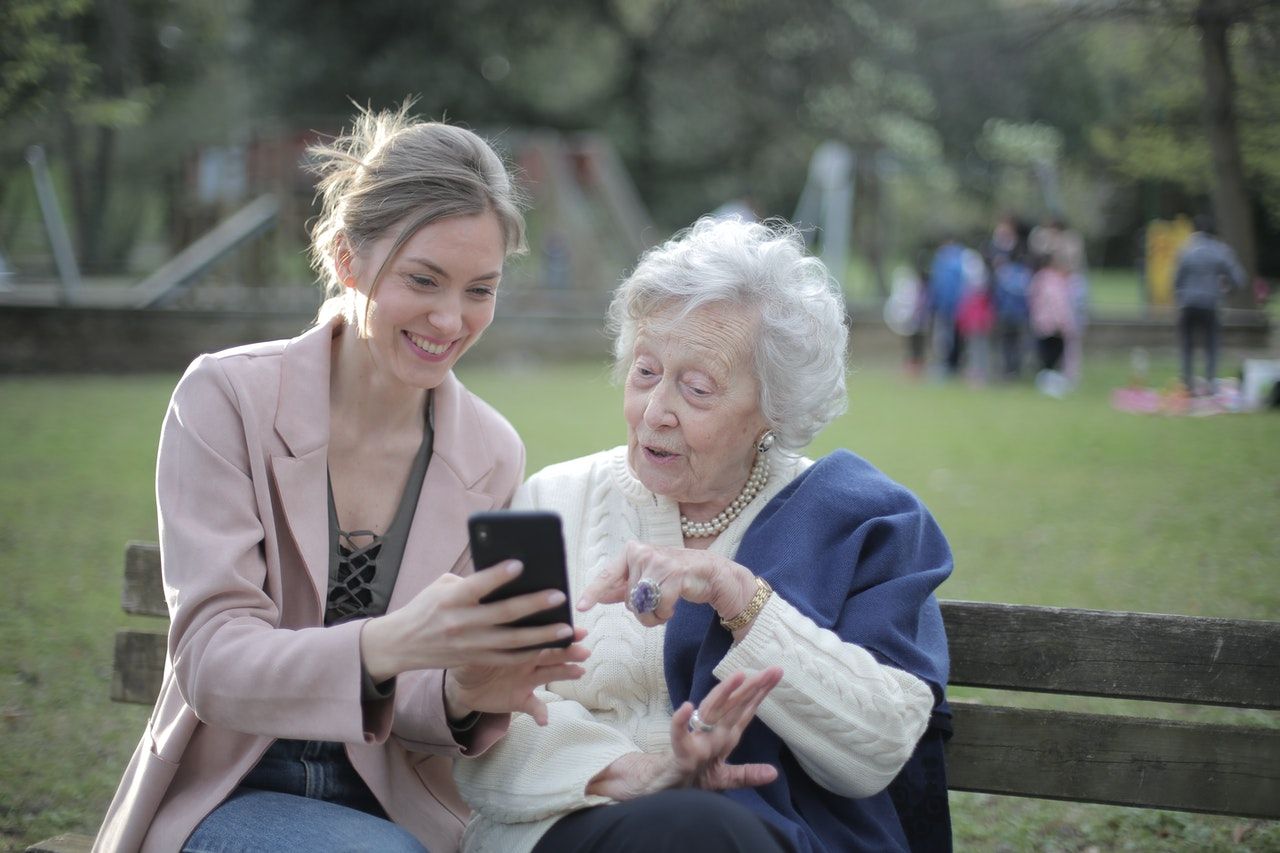
Helping those who help: Digital solutions for caregivers
By ITU News
Informal caregivers are an essential part of today’s aging societies. Although it’s not always recognized, caregiving work can come at a high physical and mental cost.
Amanda Hayes, based in the US state of Oklahoma, says she spent five years caring for a parent afflicted with dementia. In the final weeks of her mother’s life, Hayes used a mobile app to create a support group to which friends and acquaintances interested in helping could join.
She shared her initiative one night on her social media channels.
“When I woke up the next morning I had so many people that were wanting to help, offering to be in our team and taking care of my mom; helping in ways that I had not even realized that I needed.”
Digital tools have become a way for caregivers to find resources and support, as well as to coordinate care tasks.
The digital platform Ianacare – whose initials stand for I am not alone – helped Hayes form a trusted community with which to collectively perform all the practical tasks necessary for her mother’s well-being.
“With just the touch of a button, I could ask people to bring food to my house,” she says. “They will click accept, and it will show up in my calendar, and didn’t have to worry about it anymore.”
Support from this online community allowed her to lighten her duties as a caregiver and focus more on her role as a daughter. “I was able just to be present with my mom and my family.”
Tools against caregiver burnout
The number of informal caregivers has increased in recent years as life expectancy climbs in many countries.
In the United States, the estimated number of unpaid family caregivers grew by nearly 10 million between 2015 and 2020, reaching 53 million adults on the eve of the COVID-19 pandemic, according to a report by the American Association of Retired Persons (AARP).
More than a quarter of Americans acknowledge having difficulties coordinating care for an older adult or another dependent relative. Balancing these tasks with other family duties or professional commitments can be difficult.
Good communication and the sharing of responsibilities are essential to reduce stress and ultimately avoid caregiver burnout – when prolonged physical, emotional and mental exhaustion results in fatigue, anxiety and depression.
The Carely platform aims to simplify care coordination among family members and facilitate their access to specialized resources. Sharing real-time updates and exchanging information allows professional care teams to stay in sync with families.
Professional guidance and good planning
Caregivers busy taking care of a loved one tend to neglect their own physical and emotional health, according to health experts.
On top of this, stress may arise due to unrealistic expectations about the patient’s evolution, particularly with degenerative diseases like Parkinson’s or Alzheimer’s, or a loss of control over money, time, or other caregiving resources.
A software solution called TCARE analyzes a range of variables to design an appropriate care plan based on the needs of the patient and the caregiver.
The platform identifies and monitors 96 burnout factors and, based on those, outlines specific strategic and behavioral goals, and provides continual resource updates for every case.
But even with such tools at hand, informal caregivers also need professional support and guidance, particularly when making tough or complex decisions about the care of older adults.
Kinto provides “personal care coaching” to help set goals based on expert advice, aimed at improving the quality of care and boosting the well-being of both patients and caregivers. The platform facilitates the creation of medication lists, allergy alerts, insurance updates, and other reports that can be shared with doctors, family, or other people involved in caregiving duties.
This year’s World Telecommunication and Information Society Day on 17 May focuses on digital technologies for older persons and healthy ageing.
Image credit: Andrea Piacquadio via Pexels
